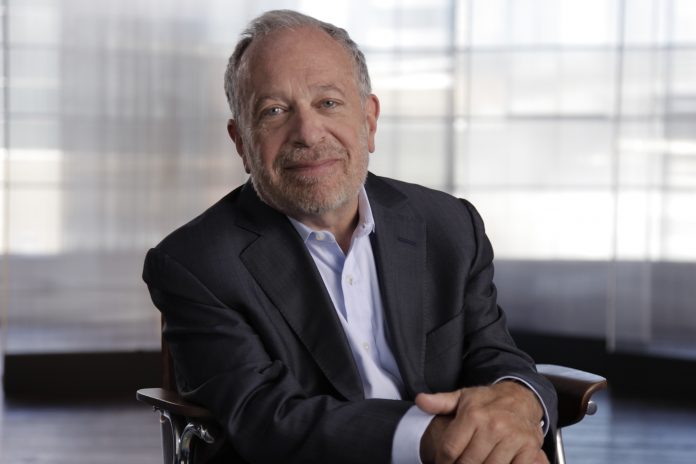Nkechi Ikem
Staff Writer
“As you can see, the Trump administration has worn me down. I was 6’2 last year,” said Robert Reich, former Secretary of Labor and current University of California, Berkeley Professor.
Reich started his lecture on a lighter note this past Thursday at a free event held in the University of California, Santa Barbara’s Campbell Hall.
After, he delved into topics covered by his most recent book, Saving Capitalism.
The lecture, titled How Did We Get Into This Mess: Reclaiming Our Economy and Our Democracy, thorougly covered the 2016 election and the national sense of disillusionment.
Reich’s lecture addressed flaws in the economic system that led to the rise of two “anti-establishment” candidates, Donald Trump and Bernie Sanders.
More than 800 people, with several being turned away due to full capacity, listened as Reich set the scene by detailing a journey he called his “red state tour.” In 2015, before the heat of the election, Reich traveled around the country to understand how people feel about America’s political and economic landscape.
When he traveled, Reich listened to farmers talk about the price increase of growing crops, mothers explain student loan troubles, and patients describe the search for inexpensive pharmaceuticals.
Reich found that many people were upset with the way the system operated. Many people felt the system deliberately ignored their needs and, as a result, were attracted to the iconoclastic and populist tone of Trump and Sanders.
“People felt that the game was rigged unfairly,” Reich said about the general feelings he noticed when he traveled through red states.
As a result of the distrust towards establishment politicians on both sides, Reich explained that “unlikely” candidates Trump and Sanders were at the forefront of people’s minds. At the time, both were dark horses; neither had the polished image nor feeling of a “typical” candidate.
For instance, Reich gave an amusing anecdote about how Bernie Sanders once rebuffed a selfie-seeker who came to him during dinner. Sander’s response was, “Hell no, I’m eating.”
Reich pointed to stagnated wages and residual aftereffects from the 2008 economic crisis as the reason for Trump’s and Sanders’ successful emergence. After adjusting for inflation, the average worker in 2017 makes less than a similar worker in the 1970s, Reich said.
Comparing the relatively high corporate tax of the Eisenhower era to the tax plan proposed by today’s Republicans, Reich said the rules have changed to the middle and working class’s detriment.
As former Secretary of Labor under the Bill Clinton administration and a strong voice on issues of inequality, Reich says some have dubbed him a “class warrior.”
However, Reich says, he’s more of a “class worrier,” concerned with getting “rid of crony capitalism.” “Crony capitalism” is the result of an unchecked, unregulated economic system that recalls the powerful industrialists of the late nineteenth century.
One matter of Reich’s wistful reminiscence was his observation that many Americans no longer think positively about the future.
Comparing the energy of the 1960s, Reich said that people nowadays are more than angry; they are cynical.
Still, he expressed optimism that the current millennial generation is reclaiming the activist and idealist spirit of the ‘60s and being more politically active than any generation.
During a follow-up question and answer session with UCSB history professor Alice O’Connor, Reich talked about student loans, globalization’s effect, automation on the economy, North American Free Trade Agreement (NAFTA), and education.
About education, Reich said the country needs to return to thinking of education as a “public good” instead of a “private investment.”
“The University of California was leading the way,” Reich said about the University of California’s past commitment to affordable education.
Reich said that while he thinks globalization contributes to inequality, he doesn’t think it’s enough to explain America’s current circumstance.
Many countries experience the effects of globalization and technology, he said, without the same degree of inequality in the United States.
Therefore, a more nuanced and discriminating analysis is necessary.
Reich said there were many bad responses to his book Saving Capitalism. More conservative-leaning people asked him why he thought something was wrong with capitalism.
On the other hand, more left-leaning people expressed they didn’t want capitalism to be saved.
“Nobody liked my title,” Reich said. He said that the book’s title doesn’t matter as much as “whether we have capitalism that is humane.”
After the Q&A, Chaucer’s sold pre-signed books of Reich’s Saving Capitalism.
Robert Reich’s new movie, also titled Saving Capitalism, is set to premiere Nov. 21 on Netflix.











